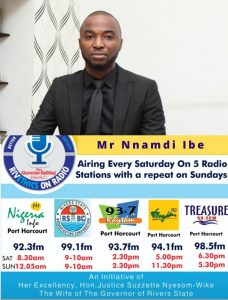
Greetings to the great people of Rivers State, and welcome to another episode of Rivethics on Radio, our character-building weekend show. Please remember that it is in our interest to curtail the spread of Coronavirus by obeying the announced safety guidelines and staying positive in faith, as efforts and resources are channeled towards eliminating the pandemic. This episode is in commemoration of the United Nations Autism Awareness Day, which came up on April 2.
Autism is a lifelong neurological condition that manifests during early childhood, irrespective of gender, race or socio-economic status. The term Autism Spectrum refers to a range of characteristics. Appropriate support, accommodation and acceptance of this neurological variation allow those on the Spectrum to enjoy equal opportunity, and full and effective participation in society.
Autism is not a disability, it is a different ability. This is so notwithstanding that the definition of autism is loaded with words like “deficit,” “disorder,” “impaired” and “restricted.” That is to say that autism does not diminish a person as a human being. Autism is not a disorder of thinking or a lack of intelligence. Autism is not a disease that we should try to cure. Rather, it is a challenge we should try to understand. We must be aware that kids with autism can experience sensory overload and that creating teaching opportunities around an autistic child’s interests can help him learn.
Therefore, our responsibility is to presume that people with autism are competent, and then go about looking for ways to help them demonstrate it. If you’re a parent, tell your child what’s going on in the family, in the world — all the interesting things that you would share with another child. Hold up your end of the conversation even if they don’t hold up theirs. Create teaching opportunities out of their own interests. Give them the dignity to be embraced as ordinary people who need to discover themselves. Teach them and read to them even without needing a test at the end. Assume that they listen; that they appreciate; that they love, while we keep looking for ways for their mouths or their hands to tell us.
Love is essential here. We must love them as they are. Not love them for who they might have been without autism, or for who they might be if they were “cured,” but as people who need to be nothing other than who they are, to be loved and accepted. Because when we do that, we open the door for them to share a meaningful life with us.
Our guest speaker for today is Mrs. Daisy Jonathan, a special educator, autism Mom and Certified Autism Service Provider. She will throw more light on the topic. Please enjoy the episode.
Our wise Rivers people, please remember to always let your manners speak for you.
God bless and keep you and your families and God bless Rivers State.
